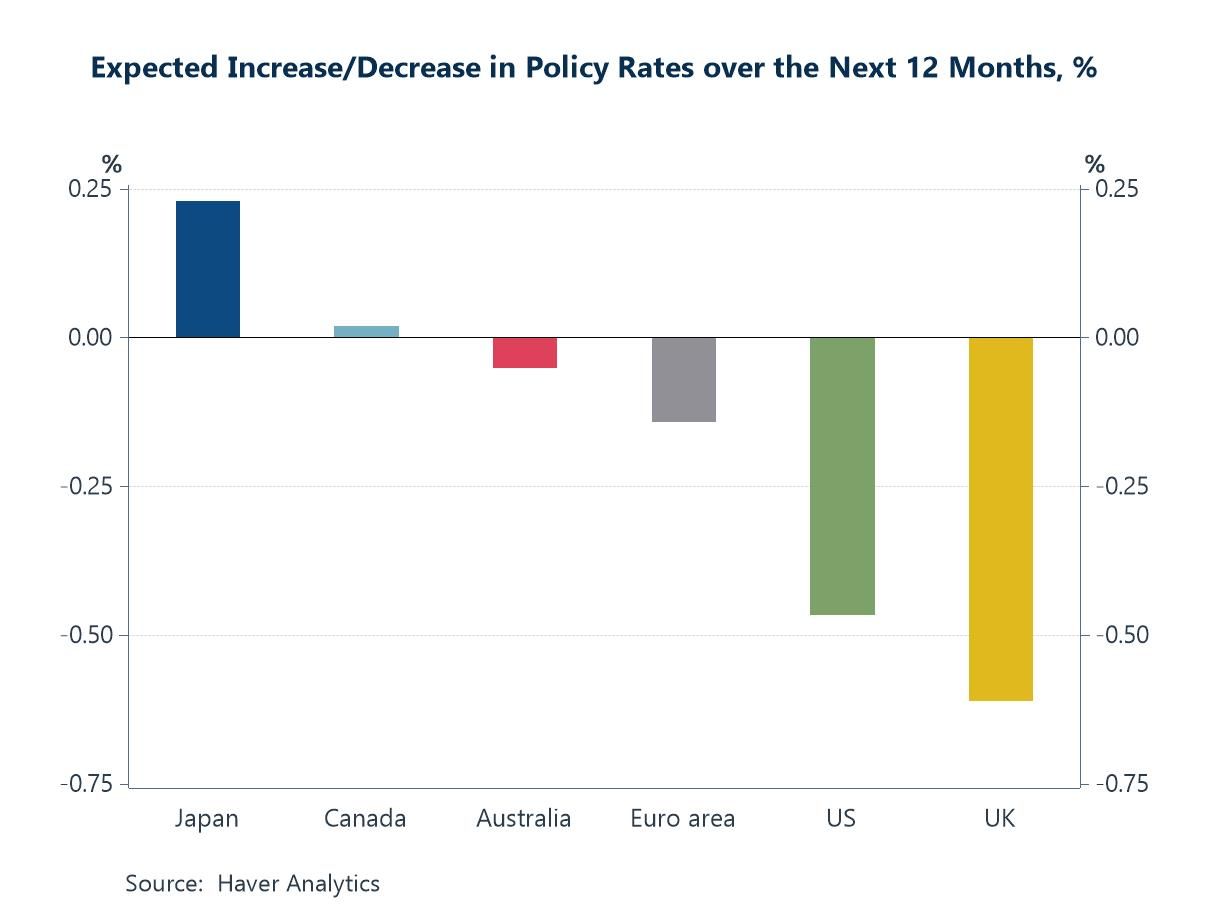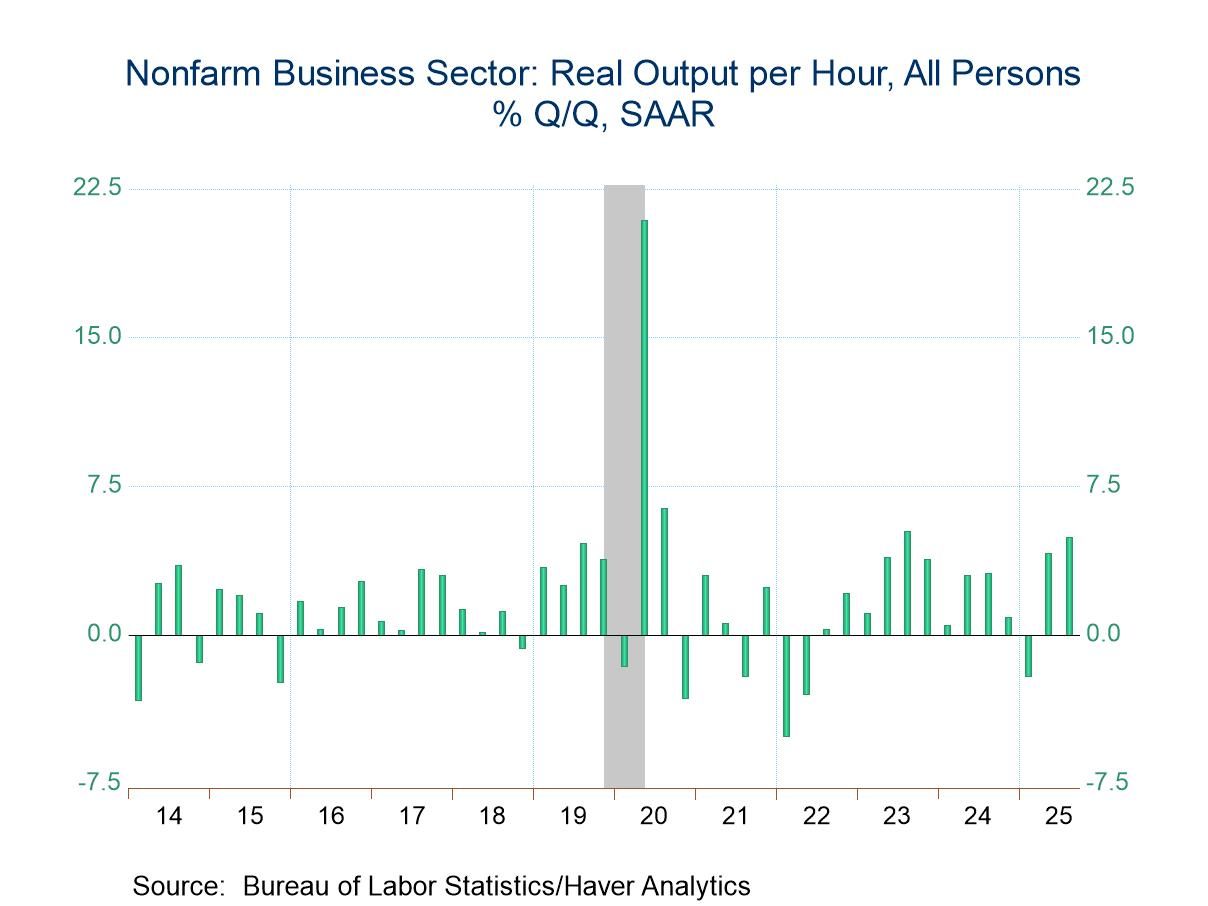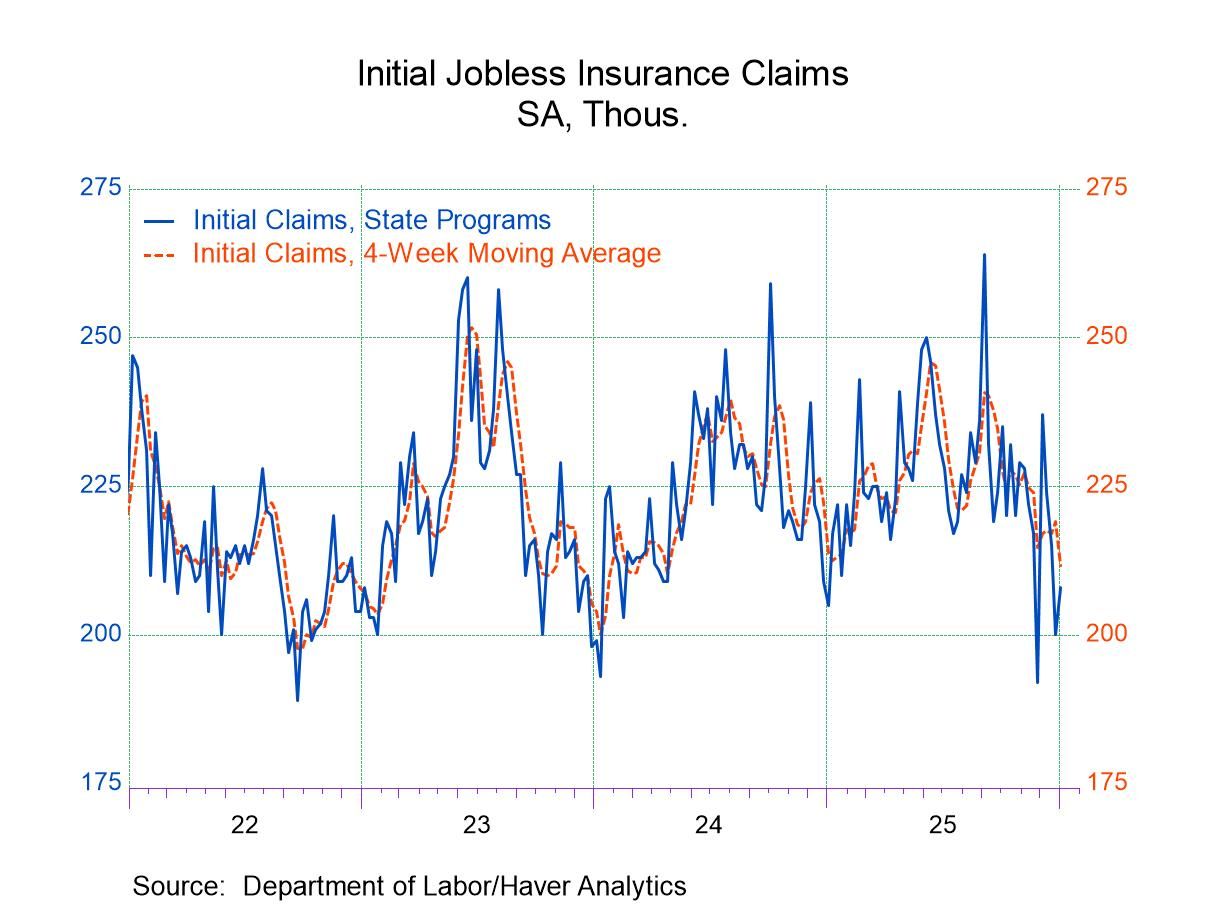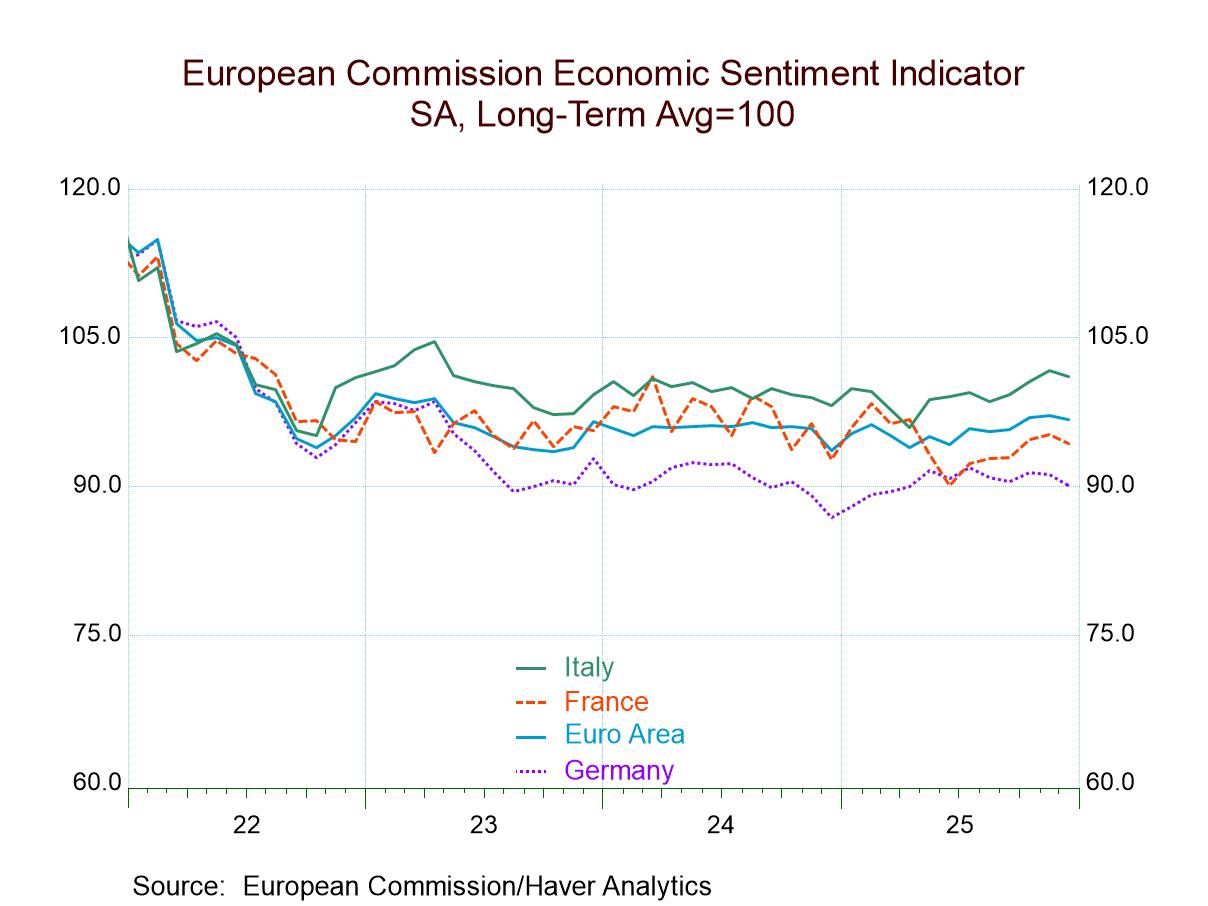 Global| Mar 09 2010
Global| Mar 09 2010U.S. Small Business Optimism Slips
by:Tom Moeller
|in:Economy in Brief
Summary
The recession has been over for nearly nine months and that has done little to improve small business' mood. The National Federation of Independent Business (NFIB) reported their February small business optimism index retraced the [...]
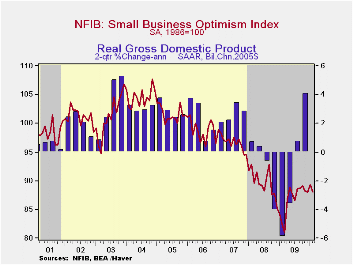 The
recession has been over for nearly nine months and that has done little
to improve small business' mood. The National Federation of Independent
Business (NFIB) reported their February small business optimism index
retraced the January gain and slipped to 88.0. Since the first quarter
of last year the index has been hovering near that level. During the
last ten years there has been an 85% correlation between the level of
the NFIB index and the two-quarter change in real GDP.
The
recession has been over for nearly nine months and that has done little
to improve small business' mood. The National Federation of Independent
Business (NFIB) reported their February small business optimism index
retraced the January gain and slipped to 88.0. Since the first quarter
of last year the index has been hovering near that level. During the
last ten years there has been an 85% correlation between the level of
the NFIB index and the two-quarter change in real GDP.
Reduced expectations for overall economic improvement pulled this measure back to its lowest level since March of last year as a majority of firms saw further economic deterioration. Expectations for sales in six months were neutral and the percentage thinking that now was a good time to expand the business fell to four percent, its lowest since March '09. Expectations for an easing of credit market conditions were skewed to further tightening and that reading is little changed since the Fall of 2008. Offsetting a piece of this deterioration was that fewer firms were planning to reduce inventory levels; in fact, it was the fewest in over a year.
Hiring plans remain restrained. The percentage of firms with one or more job openings improved slightly to its highest level since last spring but the percentage planning to increase hiring further has been moving sideways. During the last ten years there has been a 74% correlation between the NFIB employment percentage and the six-month change in nonfarm payrolls.
On the pricing front, weakness continued. The percentage of firms actually raising prices slipped to -21% (indicating deflation) and remained near the record low. During the last ten years there has been a 51% correlation between the six-month change in the producer price index and the level of the NFIB price index. However, the percentage of firms planning to raise prices improved to its highest level since late-2008. Finally, the percentage planning to raise worker compensation improved to its highest since late-2008.
The most important problems seen by business were poor sales (34%), taxes (23%, close to its highest level since 2007), government requirements (12%), insurance cost & availability (7%), competition from large businesses (6%) and inflation (3%).
About 24 million small businesses exist in the United States. Small business creates 80% of all new jobs in America and the NFIB figures can be found in Haver's SURVEYS database.
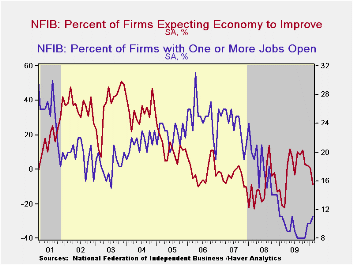
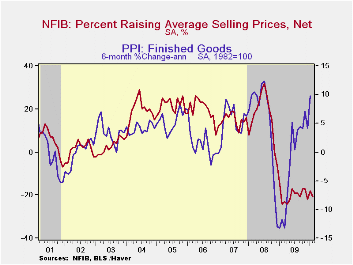
| Nat'l Federation of Independent Business | February | January | December | Feb.'09 | 2009 | 2008 | 2007 |
|---|---|---|---|---|---|---|---|
| Small Business Optimism Index (SA, 1986=100) | 88.0 | 89.3 | 88.0 | 82.6 | 86.7 | 89.8 | 96.7 |
| Percent of Firms Expecting Economy To Improve | -9 | 1 | 2 | -21 | -0 | -10 | -4 |
| Percent of Firms With One or More Job Openings | 11 | 10 | 10 | 11 | 9 | 18 | 24 |
| Percent of Firms Reporting That Credit Was Harder To Get | 12 | 14 | 15 | 13 | 14 | 9 | 6 |
| Percent of Firms Raising Avg. Selling Pric1es (Net) | -21 | -18 | -22 | -24 | -20 | 17 | 15 |
Tom Moeller
AuthorMore in Author Profile »Prior to joining Haver Analytics in 2000, Mr. Moeller worked as the Economist at Chancellor Capital Management from 1985 to 1999. There, he developed comprehensive economic forecasts and interpreted economic data for equity and fixed income portfolio managers. Also at Chancellor, Mr. Moeller worked as an equity analyst and was responsible for researching and rating companies in the economically sensitive automobile and housing industries for investment in Chancellor’s equity portfolio. Prior to joining Chancellor, Mr. Moeller was an Economist at Citibank from 1979 to 1984. He also analyzed pricing behavior in the metals industry for the Council on Wage and Price Stability in Washington, D.C. In 1999, Mr. Moeller received the award for most accurate forecast from the Forecasters' Club of New York. From 1990 to 1992 he was President of the New York Association for Business Economists. Mr. Moeller earned an M.B.A. in Finance from Fordham University, where he graduated in 1987. He holds a Bachelor of Arts in Economics from George Washington University.



